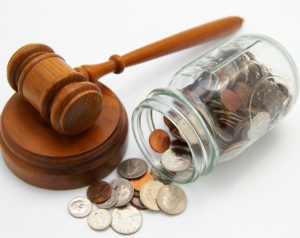
People often ask us “How much will it cost to hire an attorney?” Unlike an oil change or a haircut, attorneys don’t typically charge a flat fee for their services. An attorney may be able to give you a price estimate that is influenced by a number of different factors, but it’s unlikely you’ll walk out of the initial consultation with an exact price in mind. Today, we share four of those factors that influence the total cost of an attorney.
Pricing Your Attorney
These are some of the main factors that influence the total cost of your defense lawyer.
1. Experience – Experience plays a big role in the price of an attorney. If you were caught driving drunk, would you want a criminal defense attorney with 20 years experience defending drivers against DUI charges, or would you want a young lawyer who just passed the bar to defend you? Odds are you want the lawyer with experience, and since they have a proven track record of success, they can charge more per hour than the young lawyer looking to build experience.
2. Case Complexity – The more complex your case is, the more time your attorney is going to have to spend creating and implementing a defense, which is going to lead to a higher bill. For example, a reckless driving ticket may only take an hour or two of research and time in court to secure a favorable result, while an assault charge will take time to collect the police reports, listen to witnesses, craft a defense, appear in court and argue your case. Many lawyers charge between $100-$300 per hour, so a case that takes 20 hours to defend will certainly cost more than a two hour traffic ticket case.
3. Location/Firm Size – Where you’re arrested and the size of the law firm also impacts the bottom line. Attorneys in bigger cities may be more expensive than firms in small towns simply because they have higher costs and thus charge a little more, but they are likely handling more cases, which goes back to the point about experience. Additionally, larger firms typically charge more than small firms, and while they have the luxury of having more people develop a defense strategy, going to a small firm means you know exactly who is handling your case, and it’s likely that they are juggling fewer cases than the big boys, so you’ll probably have better communication with your attorney if you go with a small firm. It’s really about preference at this point.
4. Communication – You are billed for the time an attorney works on your case, which means if he or she is sending you an email, a text or calling you on the phone, you are paying for that conversation. The more you reach out to your attorney for case updates, the more you are going to be billed. Obviously it doesn’t take long to have a quick phone conversation, but if you call twice a day for two weeks, that time is going to add up. Try to develop a communication schedule with your attorney at the initial consultation so you are both on the same page in terms of how much communication and case updates are necessary.





